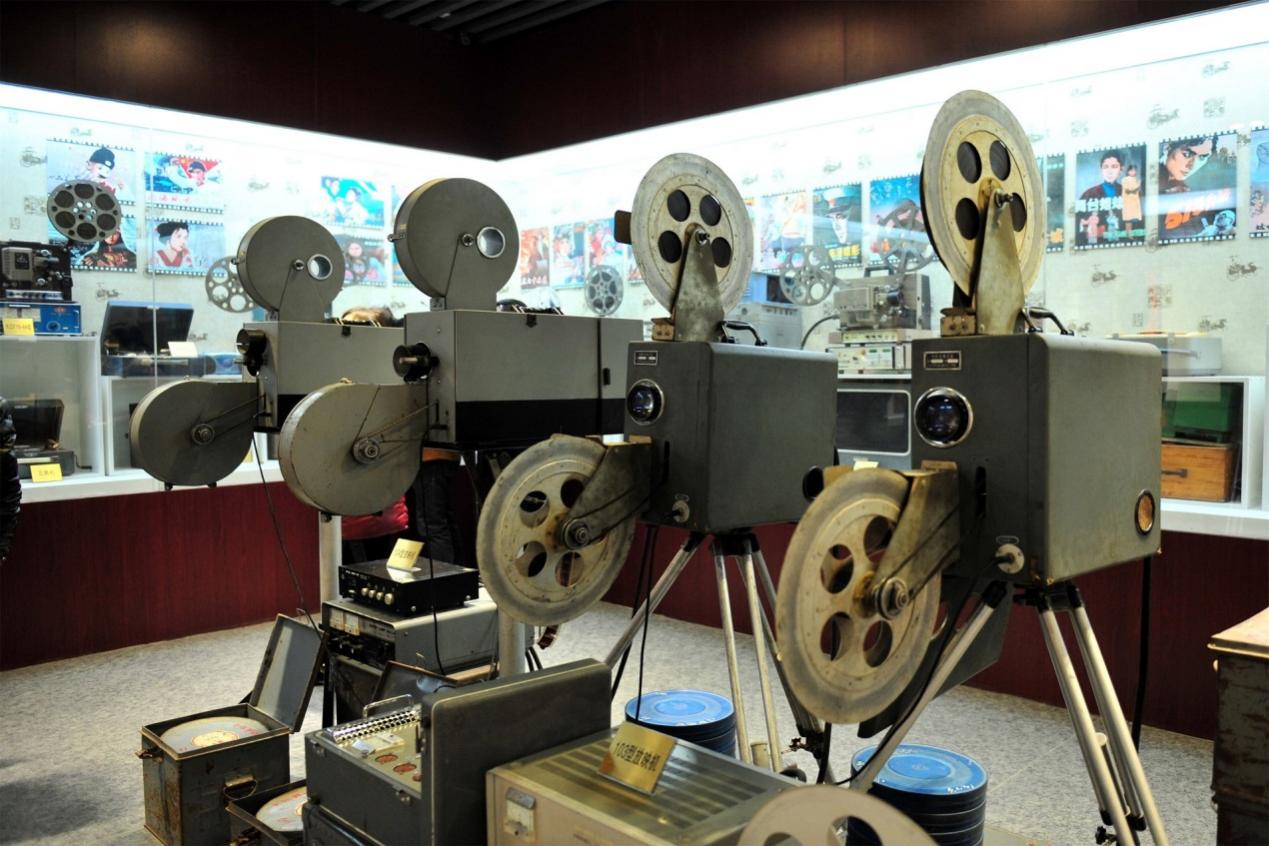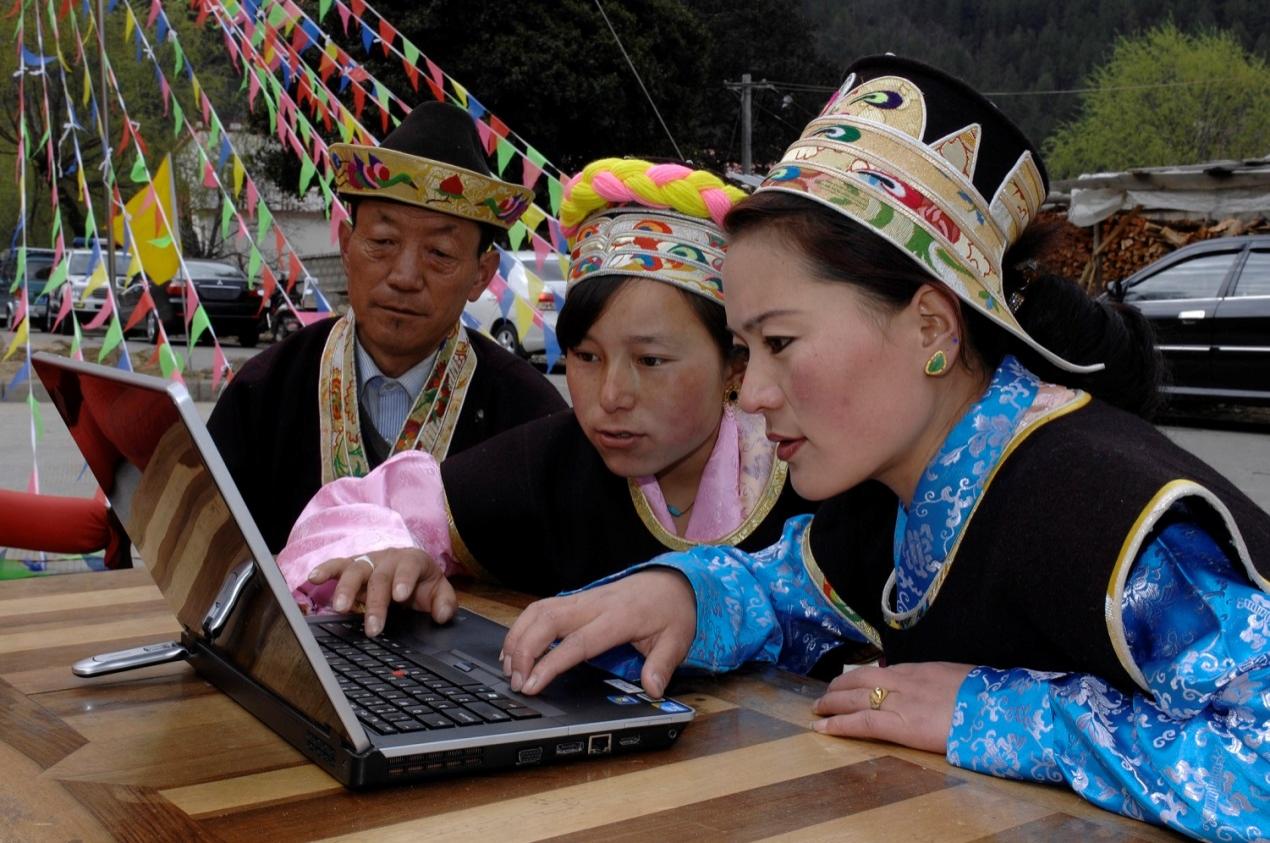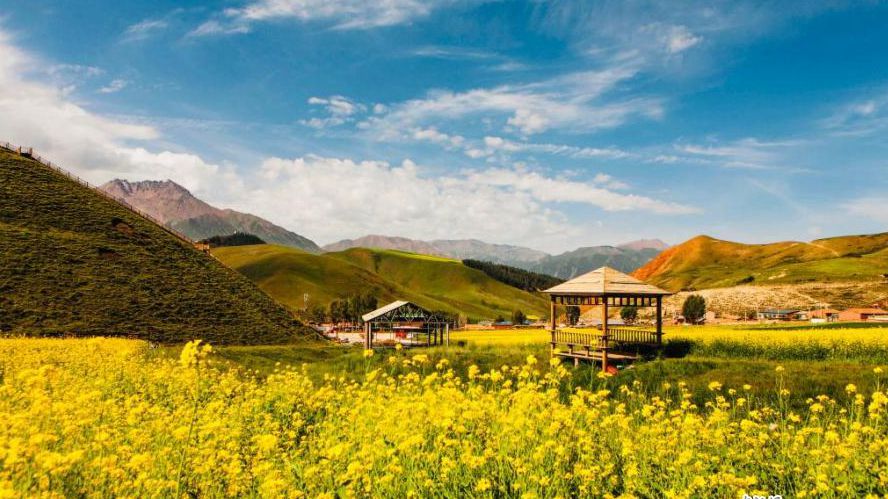"Open-air cinemas" mirror cultural life changes in Tibet autonomous region

Photo shows film projectors collected by a folk museum in Yichang, central China's Hubei province. (Photo by Zhang Guorong/People's Daily Online)
Lodro is a rural projectionist in Damxung county, which sits on an average altitude of 4,300 meters in Lhasa, capital of southwest China's Tibet autonomous region. In the past 37 years, Lodro has shown free movies to farmers and herdsmen in nearly 200 villages.
A "movie tour" to villages sometimes took him more than three months, during which he had to take screens, a projector, films, a generator, as well as food and beddings on a hand tractor.
There are many projectionists like Lodro in Tibet. They have left their footprints on almost every piece of inhabited land in the autonomous region, to enrich the cultural life of residents.
Herdsmen in Tibet led a poor cultural life in the 1980s and 1990s as villages there were isolated without road and electricity. Watching movies was an important source of entertainment and information about the world at that time.
To watch movies, some villagers would travel kilometers away from their homes with projection teams, They would gather together to enjoy the movie in rain or shine, and danced beside the screen after the movies were over.
Projectionists were inspired to keep running from village to village by this passion. Last year, over 66,000 movies were screened by 500 rural projection teams working across remote villages in Tibet autonomous region.
As film projectors have been replaced by electronic ones with colorful digital films, movies today are screened for villagers in an on-demand manner, which reflects the upgrading of public cultural services in the autonomous region.
In 1998, China started a project that aimed at screening a movie for every village every month. Two years later, the country kicked off another program that dubbed over 2,400 movies for residents in Tibet in the following 20 years.

Residents from a village in Nyingchi, southwest China's Tibet autonomous region browse news on the internet during an activity aiming to introduce broadband services to Tibetan villages, April 10, 2012. (Photo by Li Weiming/People's Daily Online)
These public cultural services have brought abundant cultural resources and better cultural infrastructure to Tibetan herdsmen, laying a solid foundation for the development of mass cultural activities.
Nowadays, splendid video shows are available on herdsmen's mobile phones and televisions. All administrative villages in Tibet autonomous region have broadband internet access, and over 99 percent of them are covered by both optical fiber broadband and 4G signals.
The well-developed internet infrastructure enables residents in the autonomous region to search for cultural content anytime and anywhere, and they are able to watch movies and dramas, attend online classes and read news. Many herdsmen also share their life and talent on short video platforms.
Tibet has developed from a time when there were only film projectors to an era in which people are acquiring information from smartphones and computers. Internet signal, crossing mountains and rivers, has not only altered the cultural life of Tibetan residents, but also improved their livelihood and happiness.
As information technology develops, "open-air cinemas" are losing glamour. Today, more and more movies are screened indoors in the autonomous region so that the audience can get a more comfortable experience. Projectionists, in the past and the present, have always been presenting movies to villagers, meeting their aspirations for a better life.

Chinese telecommunication carrier China Mobile builds a 5G station at an altitude of 6,500 meters on Mount Qomolangma, southwest China's Tibet autonomous region, April 2020. It is the world's highest 5G base station. (Photo courtesy of China Mobile)
Photos
Related Stories
Copyright © 2022 People's Daily Online. All Rights Reserved.









